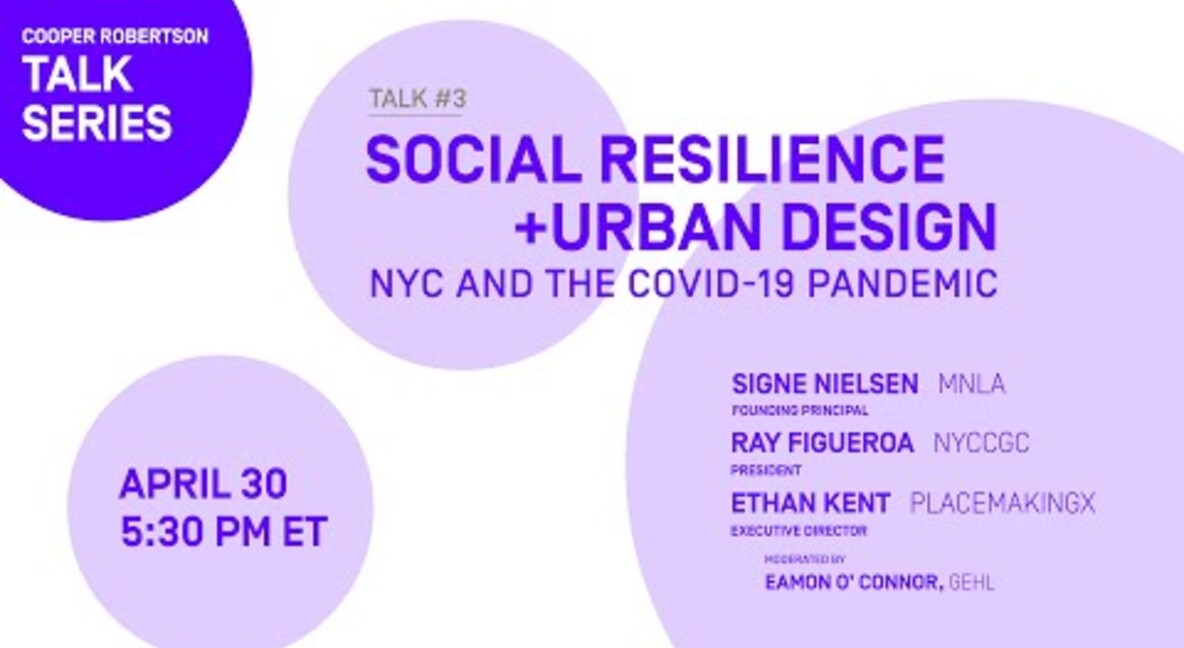
Though cities and urban environments have historically been the epicenter of infectious disease, most urban residents alive today have never had to contend with an outbreak of the current pandemic scale. Within a span of weeks, the COVID-19 pandemic has exacerbated pervasive urban and social issues in underserved neighborhoods across the United States, highlighting disparities in access to open and green space, healthcare, pharmacies, food, and critical equipment such as masks.
In responding to the current pandemic and looking to the future, what can planners, designers, and public officials learn about how to make neighborhoods and communities more resilient? Convened and facilitated by leading urban design firm Cooper Robertson, this live-streamed talk explores how to better define and implement concepts of social resiliency and equitable access.
A panel of preeminent designers, planners and public agency and community leaders will discuss what resiliency means in the context of COVID-19, the effects of the pandemic on the presenters' own work, neighborhoods and cities, and future implications for how cities are designed and planned with respect to resource allocation, social safety and health.
PANELISTS:
Signe Nielsen, Mathews Nielsen Landscape Architects
Raymond Figueroa-Reyes, New York City Community Garden Coalition
Ethan Kent, PlacemakingX
Eamon O'Connor, Gehl
This live-streamed discussion is the third in the ongoing Cooper Robertson Talk Series, a succession of panel events focused on issues of diversity and inclusivity in the worlds of art museums, architectural education, and urban design.